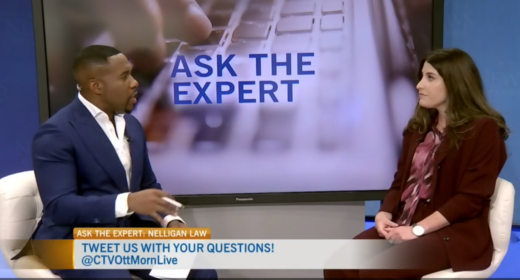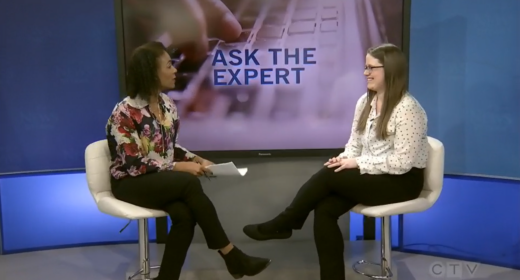When talking about your estate plan, the same questions always come up: What are you going to do with your cottage? To whom will you leave the contents of your bank account? Who will inherit your family heirlooms? However, over the years, technology has allowed us to acquire a whole new category of assets we can see, but not touch.
What is a digital asset?
Water is a useful metaphor for digital assets. They are fluid, ever-changing and dynamic, which presents both challenges and opportunities for executors. The type of digital asset can vary widely, and includes files stored on digital devices, e-mails received, e-mail accounts, digital music, photographs, digital videos, social network accounts (Facebook, Twitter, Flickr, YouTube, Instagram, Linkedln, Kijiji, etc.), bank accounts, online stores, online banking, e-bills, loyalty programs, Netflix, online poker or any other online role-playing games.
How does an estate trustee get access to digital assets?
Digital assets can be broadly broken down into two categories: those with realizable financial value and those with sentimental or personal value. The key to accessing many of these assets is to first locate any electronic devices that may contain digital assets, such as the deceased's personal computer, tablet, cell phone, iPod or e-reader. Once an estate trustee gains access to a device, they can begin to uncover a deceased's digital assets. The estate trustee should be cautious, however, to ensure he or she does not violate any terms of service agreements the deceased had with online service providers. Ontario does not have any overarching legislation to govern an estate trustee in the area of digital assets. As a result, the estate trustee must act within the confines of the terms of service agreements for each particular digital asset.
PayPal accounts
If the deceased had a PayPal account with an outstanding balance, an estate trustee will need to send PayPal three documents to retrieve funds:
- A copy of the Will or other legal document that gives the estate trustee authority.
- A copy of the death certificate.
- A letter explaining the account holder is deceased and requesting the account be closed.
If PayPal approves the documentation, they will close the account, and if any funds remain in the account then a cheque will be issued in the name of the account holder.
Loyalty programs
In 2009. there were over 115 million loyalty program members in Canada, with the average Canadian household participating in 9.2 programs. Although many of these point cards will be inconsequential, for those who travel often for work, or are diligent about collecting points on a daily basis, the point value on these cards could be worth thousands of dollars. The ability to transfer these points to a beneficiary after a loyalty program member dies is subject to the specific terms and conditions of each program. The ability to use a deceased member's points is often directly and indirectly limited by time restrictions for redemptions. For example, Aeroplan's terms and conditions state Aeroplan may, at its sole discretion, allow members to transfer miles after death.
Conversely, Air Miles allows a points transfer free-of-charge if a member dies, and there does not appear to be a time limit on redeeming those points arising strictly from the death. However, the general terms and conditions stipulate miles will expire five years after the death on which they were posted to an account.
Other loyalty programs do not allow the transfer of points upon a member's death. The Shoppers Optimum Rewards Program closes an individual's account upon learning of his or her death, and points are forfeited. Therefore, an estate trustee must now be diligent in exploring a deceased's digital assets to ascertain any assets with significant value.
Facebook is arguably the most popular social media site, and an estate trustee may need to address what to do with the deceased's account after death.
In an ideal world, the user will have indicated their wishes prior to death by accessing the "legacy contact" page under Security Settings. From there, a person can choose to have their account memorialized or permanently deleted upon death. If they wish to memorialize the account, the user can designate a legacy contact, which Facebook launched in Canada in April 2015.
A legacy contact can write a final post on behalf of the deceased, update the deceased's profile picture and cover photo, and accept new friend requests, such as family members who were not "friends" with their relative on Facebook. However, a legacy contact cannot log in to the account, access private messages or delete existing friends.
If the user has not indicated their wishes for their Facebook account prior to death, the deceased's loved ones can make requests. Facebook notes that if they are made aware that a user has passed away, it is their "policy to memorialise the account," but "verified immediate family members may request the removal of a loved one's account."
Facebook notes that to do any of the above actions, you will need to upload documentation, like a death certificate, as well as provide proof that you are an immediate family member or have authority to deal with the deceased's account. In order to access content, Facebook requires the estate trustee to obtain a court order.
Currently, there is no mechanism to access a deceased's Twitter account. Twitter will deactivate and remove a deceased user's account if they receive a request from a person authorized to act on behalf of the estate or with a certified immediate family member of the estate.
Final thoughts
To help your estate trustee manage your digital assets, you should keep an up-to-date inventory with login names and passwords of all of your accounts. You should also put directions in your Will and Powers of Attorney of what your estate trustee should do with your digital accounts upon death.
Marcia A. Green is an associate lawyer with the Ottawa law firm of Nelligan O'Brien Payne LLP (www.nelligan.ca) and a member of the Wills and Estates Practice Group.


